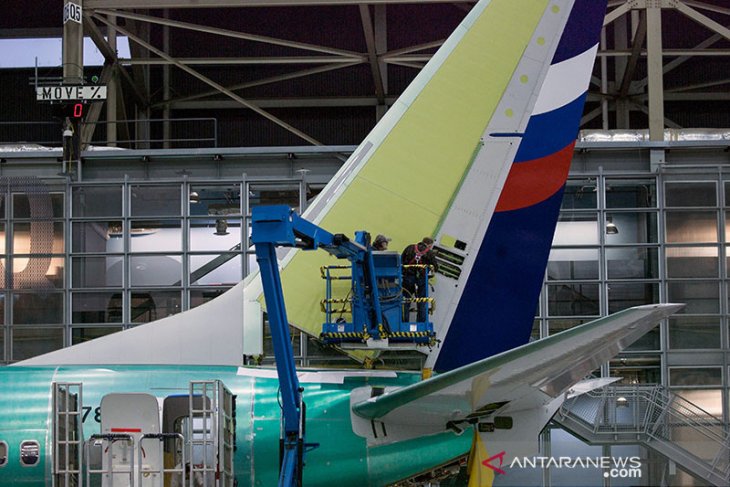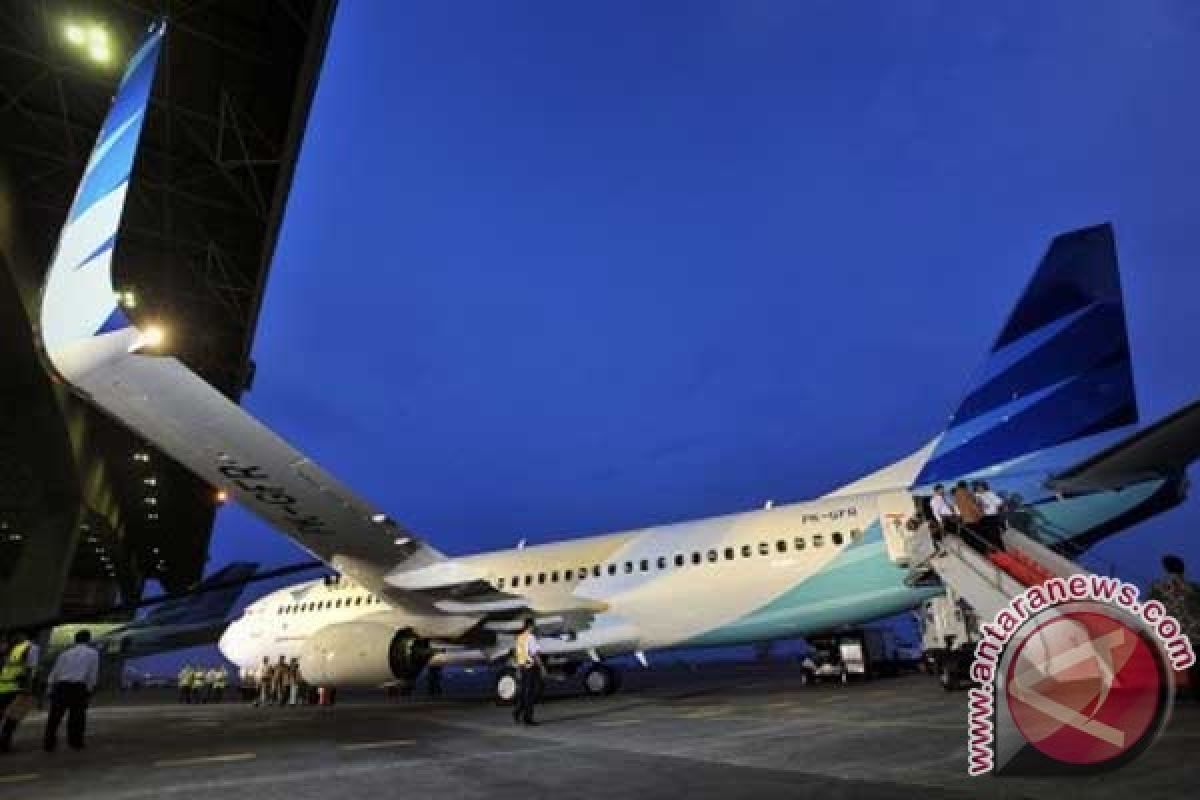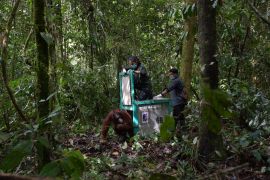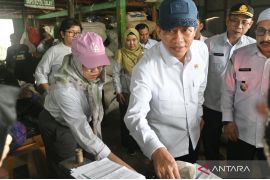Jakarta (ANTARA) - The Indonesian Transportation Ministry has swung into action, ordering aircraft operators to inspect Boeing 737 New Generation (B737NG) aircraft operating in Indonesia over the Federal Aviation Administration’s (FAA's) report indicating a finding of structural cracks.
The FAA report pointed to the condition potentially endangering safety following the discovery of cracks on the outboard chords of frame fittings and failsafe straps adjacent to the stringer S-18A straps, Director General of Air Transportation Polana B. Pramesti noted in a written statement released in Jakarta on Tuesday.
FILE PHOTO: In this file photo, Boeing employees work on the tail of a Boeing 737 NG at the Boeing plant in Renton, Washington Dec 7, 2015. REUTERS/Matt Mills McKnight/File Photo (REUTERS/Matt McKnight)
She pointed out that the unsafe condition could result in failure of a Principal Structural Element (PSE) to sustain the limit load and could adversely affect the airplane’s structural integrity.
"The condition may affect the structural integrity of the plane and result in loss of control," she cautioned.
The Directorate General of Air Transportation obtained the information through the Continued Airworthiness Notification to the International Community (FAA CANIC) report addressed to all civil aviation authorities (CAA) worldwide on September 27, 2019. The report’s recommendation necessitates inspection of all B737NG aircraft to assess the extent of damage in each of them.
Pramesti has ordered the Directorate of Aircraft Airworthiness and Operation (DKPPU) to follow up on the notification issued by FAA through CANIC.
"The Transportation Ministry gives priority to safety. Hence, the Directorate General of Air Transportation will always make a concerted effort to ensure the safety of each plane operating in Indonesia. We will conduct further inspection to ascertain the level of damage to Boeing planes, particularly B737NG," she stated.
Director of Aircraft Airworthiness and Operation Avirianto admitted to having ordered flight operators operating B737NG aircraft to promptly follow the instruction in line with the Airworthiness Directive 19-10-003.
To this end, B737NG aircraft, with an accumulative cycle of over 30,000 Flight Cycle Number (FCN), are subject to inspection no later than seven days after AD 19-10-003 began to take effect, or October 11, 2019. B737NG, with over 22,600 FCN, should be checked before completing 1,000 FCN since AD 19-10-003 came into force.
The next inspection is conducted once every 3,500 FCN.
"Currently, the airlines companies operating B737NGs are Garuda Indonesia, with 73 planes; Lion Air, with 102 planes; Batik Air, with 14 planes; and Sriwijaya Air, with 24 planes," he noted.
On the basis of the outcome of inspection conducted by the directorate, as of October 10, 2019, crack was discovered on one of the three B737NG planes owned by Garuda Indonesia, with over 30,000 FCN, and on two of the five B737NG aircraft owned by Sriwijaya Air, with over 30,000 FCN. Neither Batik Air nor Lion Air operate B737NG plane, with more than 30,000 FCN.
The inspection also showed cracks on three B737NG aircraft operating in Indonesia, with an accumulative cycle of more than 30,000 FCN, as of October 10, 2019. All three B737NG aircraft have been grounded, pending further recommendation from Boeing.
Related news: Lion Air's losses touch US$20 million following Boeing Max ban
Related news: Indonesia officially seeks FAA's further advice on Boeing 737 MAX-8
Related news: Lapan highlights roadmap for aviation industry at AeroSummit
EDITED BY INE










